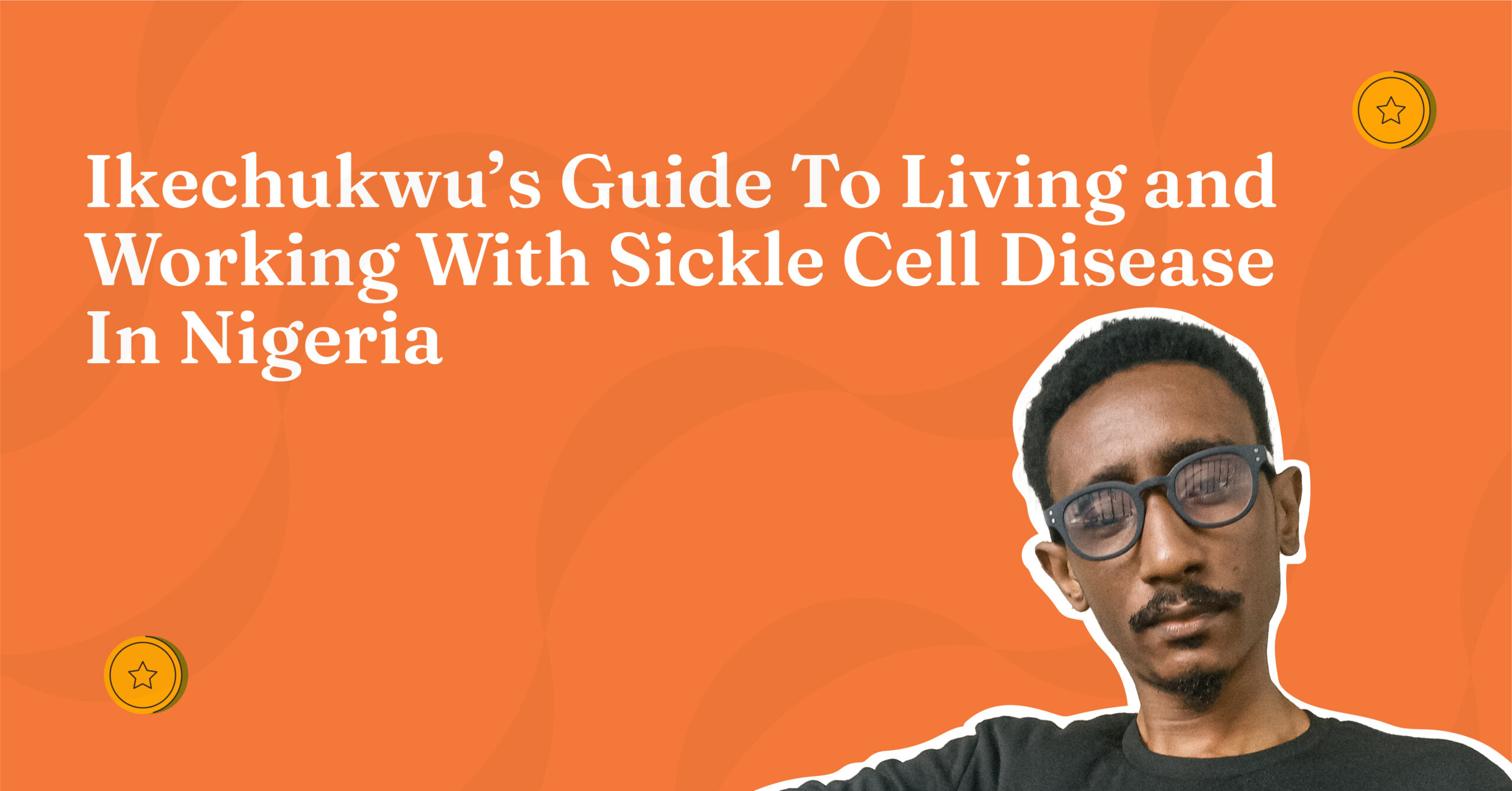I have been living with Sickle Cell Disease (SCD) since I was a child. Sickle cell is a chronic condition where the red blood cells become misshapen, causing severe pain, fatigue, and other complications. It demands constant attention and care, making it one of the most challenging conditions to manage.
Despite living with a chronic illness, I have lofty goals for my career. I work as a digital marketing and programme manager for Haima Health Initiative. Here’s how I live my life to make sure I do my best at work.
Living with persistent symptoms of sickle cell disease
Living with sickle cell disease means my days are unpredictable. So when I wake up every morning, I check how I feel. This is what determines how the rest of the day is going to go.
On days I have crises, I experience joint pains, my knees and my elbows hurt badly. Sometimes, I feel pain in my hip or my left femur where I have AVN. AVN stands for Avascular Necrosis. It is a condition that happens when there is a loss of blood supply to the bone, leading to bone tissue death. On such days, I have to pause work to prioritise my health.

6 tips for balancing work and sickle cell disease
1. Staying hydrated: Hydration is a must. I take water breaks, do some stretches, and rest whenever possible, which helps manage fatigue during long work hours or overtime.
2. Communicating with my employer: I always inform my employers of my condition and needs. Some are empathetic and supportive whenever I do this and offer flexible hours while others tell me to try and adapt. Either way, clear communication helps me get the necessary support and accommodations.
3. I choose jobs with flexible working hours: I manage fatigue and pain by working flexible hours and often from home. This allows me to take regular water breaks and conserve energy, especially during outdoor activities.
4. I plan for extended leave: I plan for the possibility of extended leave during crises. My former boss was understanding when I informed him about my hospitalization, allowing me extra time to recover and work from home after discharge.
5. I optimise productivity during crises by prioritising my health: During flare-ups, I concentrate on pain relief, staying hydrated, and getting enough rest. I then reassess my tasks, prioritizing those with immediate deadlines and high importance. Managing pain and resting well is key to maintaining productivity.
6. Seek support from friends: It gets frustrating trying to manage your health and work life. I speak to a friend who is also a sickle cell patient and she helps me get through the rough days. We help ourselves through rough days, as we can’t afford therapy.
Living and working with sickle cell disease in Nigeria is challenging, but with effective strategies, it is possible to lead a fulfilling and productive life. Despite my health, I have huge career goals to achieve. For example, by the end of 2024, I hope to have been certified as a cloud solution architect with Google GCP, Microsoft Azure, and Amazon AWS. I balance my health and career well to achieve these goals.





